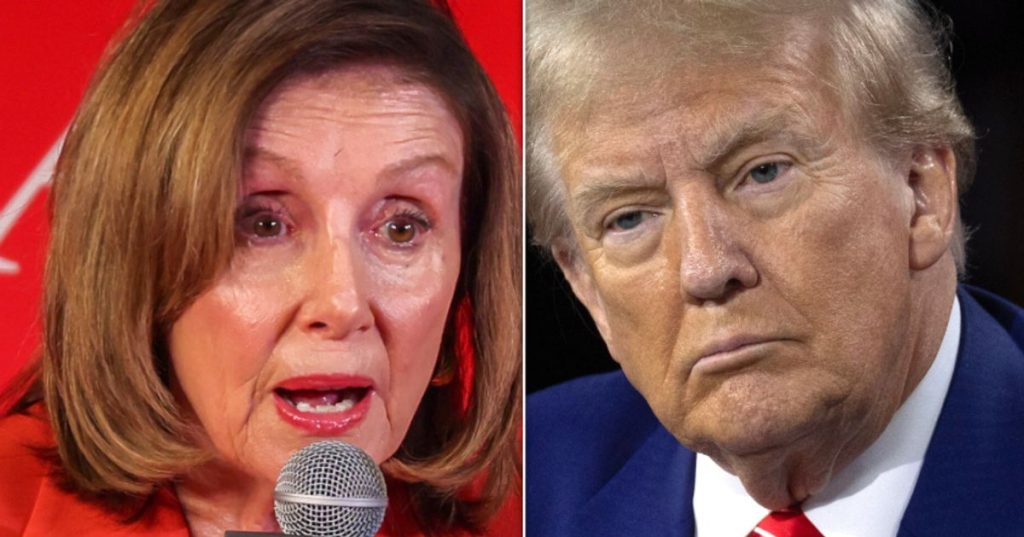In a recent interview, Rep. Nancy Pelosi shared her disdain for referring to former President Donald Trump by his name, often opting to call him “what’s his name” instead. Pelosi, a vocal critic of Trump, described the former president as a “grotesque word” and admitted that she avoids saying his name due to her Catholic upbringing, where saying bad words could result in damnation. Pelosi likened saying Trump’s name to swearing and expressed a fear of facing consequences for uttering it.
Despite her reluctance to say Trump’s name, Pelosi did refer to him when discussing his attacks on freedom of speech during the interview. However, she immediately expressed remorse for doing so, jokingly worrying about the potential consequences of saying his name. Pelosi’s tongue-in-cheek comments about burning in hell for mentioning Trump highlighted her strong feelings towards the former president and her commitment to holding him accountable for his actions.
Pelosi’s decision to avoid saying Trump’s name reflects her deep-seated opposition to his policies and behavior during his time in office. As a prominent Democratic leader, Pelosi has been a vocal critic of Trump, often clashing with him on various issues. By refraining from using his name, Pelosi may be emphasizing her refusal to normalize or give undue attention to Trump, thereby underscoring her mission to hold him accountable for his actions without giving him the satisfaction of being named directly.
The interview with Pelosi provides insight into her personal beliefs and values, particularly related to her Catholic upbringing and the influence it has had on her approach to language and communication. Pelosi’s remark about risking damnation for saying Trump’s name sheds light on the power of words and the significance she places on the language she uses. This humorous yet reflective moment showcases Pelosi’s wit and willingness to engage in self-deprecating humor while addressing serious political issues.
As a seasoned politician and former House speaker, Pelosi’s comments on the podcast underscore her strategic approach to engaging with the media and shaping public discourse. By discussing her aversion to saying Trump’s name in a lighthearted manner, Pelosi effectively humanizes herself and adds a personal touch to her public image. This deliberate choice to use humor and self-awareness in addressing political topics highlights Pelosi’s rhetorical skill and ability to connect with audiences on a more relatable level.
Overall, Pelosi’s decision to avoid saying Trump’s name in the interview, coupled with her humorous reflections on the potential consequences of doing so, offers a window into her personality and political style. By sharing her thoughts on language, religion, and politics in a candid and entertaining manner, Pelosi showcases her multifaceted approach to communication and her continued commitment to speaking out on issues she is passionate about. This interview serves as a reminder of Pelosi’s strength as a leader and her unwavering dedication to upholding her beliefs, even in the face of controversy.


